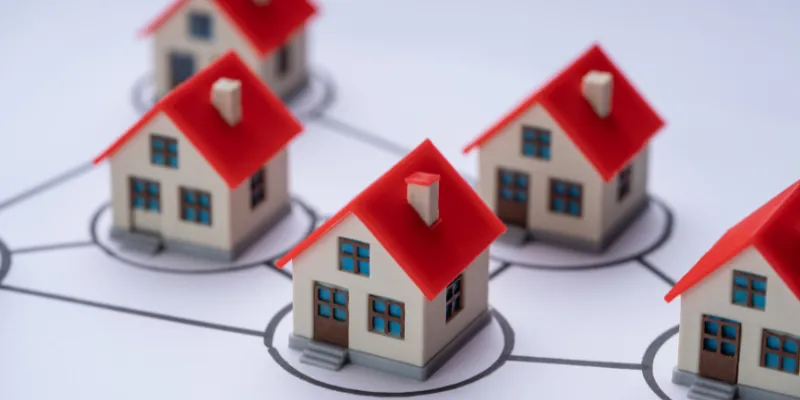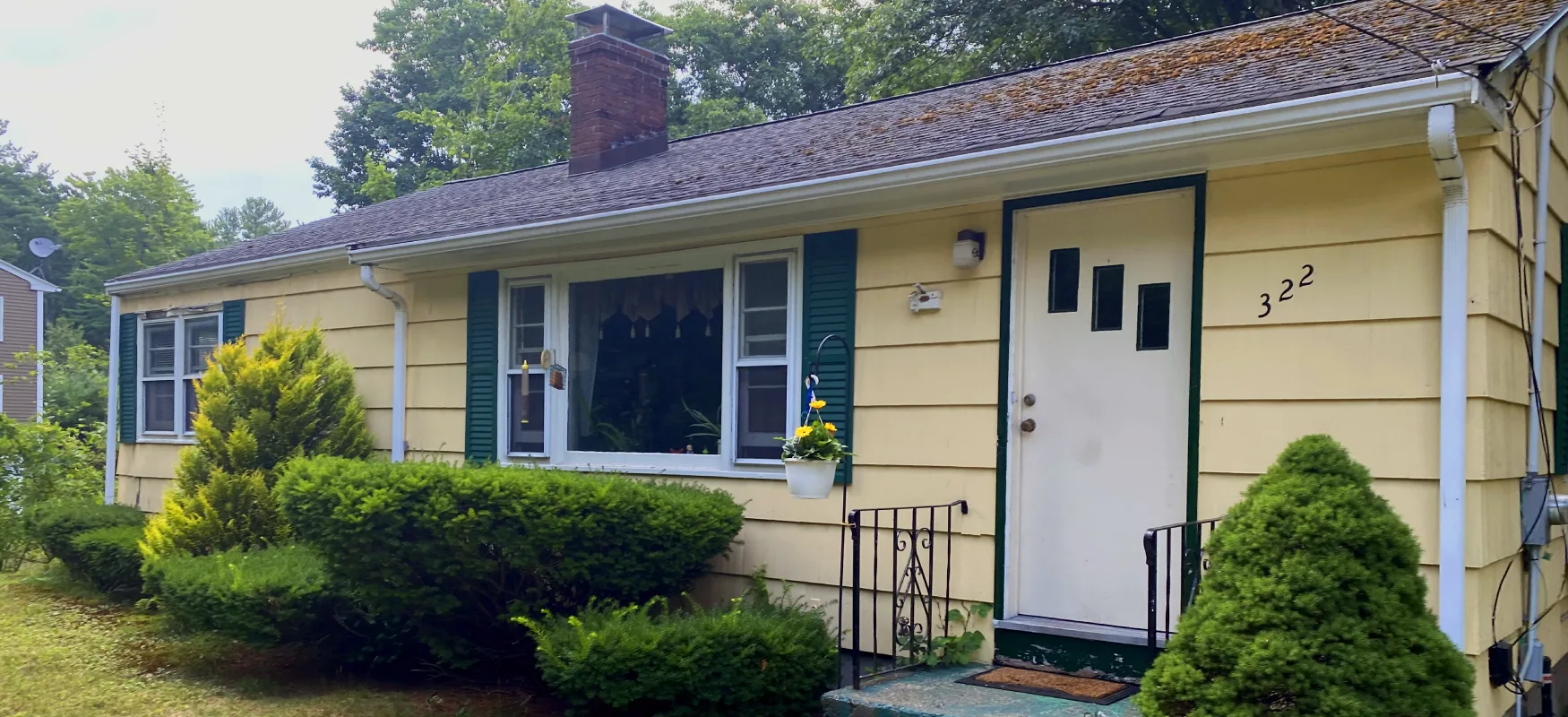In Massachusetts, an HOA can foreclose on your home if you fail to pay dues or assessments. They may place a lien and pursue legal action, but strict procedures must be followed. Turning Point Home Buyers can help you understand your rights and protect your home.
Understanding Homeowners Association (HOA) Rules and Regulations
Because of their rules and regulations, Massachusetts Homeowners Associations (HOAs) have a lot of power, which can have a big effect on homeowners. This information is very important because it governs everything from taking care of property to how people should act in the community.
Homeowners associations (HOAs) can legally charge homeowners fees and special assessments that pay for services and benefits for everyone. The homeowner’s association (HOA) can take back its land through foreclosure if these fees are not paid.
For example, the Declaration of Covenants, Conditions, and Restrictions (CC&Rs), the bylaws, and any other rules made by the HOA board give the governing documents their power. Folks who own homes need to read these papers to fully understand what they need to do.
MA law also spells out specific steps that homeowner associations must take before they can foreclose on a home because of unpaid fees or rule-breaking. In order to protect their property rights and avoid the risks of loss that come with not following the rules or being behind on payments in a HOA-managed community, homeowners need to know both state laws and HOA-specific rules.
Protecting Your Home From HOA Actions
Protecting your property from HOA actions in Massachusetts necessitates a proactive approach to knowing the legal framework governing homeowners’ association foreclosure. Homeowners should understand their community’s HOA bylaws and regulations, including any duties or dues.
In Massachusetts, delinquent HOA dues can lead to foreclosure proceedings, so it’s crucial to stay on top of payments. Homeowners should also communicate openly with their HOA board, addressing any financial issues as soon as feasible in order to arrange payment schedules or seek mediation.
Legal counsel may be required to properly understand the rights and protections provided under Massachusetts law, which could help prevent unnecessary foreclosures. Understanding the exact timeframe and procedural requirements for a HOA foreclosure in Massachusetts will help homeowners take prompt action and keep their property from being repossessed by the organization.
Protect your home from HOA actions by knowing the rules, staying involved, and responding promptly. If you need to sell your home for cash in Massachusetts and the surrounding areas, call us Turning Point Home Buyers.
Rights of Property Owners Facing HOA Challenges
People who own property in Massachusetts and are having problems with their Homeowners Association (HOA) should know their rights, especially when it comes to foreclosure. Homeowners need to know the laws that govern HOAs in order to safeguard their property and money.
HOAs in Massachusetts can enforce rules and collect dues, but they have to follow certain steps before starting foreclosure. Homeowners have the right to have a written notice of delinquency and a chance to pay any late bills or settle any concerns.
Homeowners should read their HOA’s governing documents, such as covenants, conditions, restrictions (CC&Rs), and bylaws. These documents explain what homeowners have to do and what the HOA can’t do. State laws also safeguard homeowners by requiring mediation or arbitration in some circumstances. This gives homeowners a chance to settle their differences without going to court.
Knowing about these rights can help homeowners deal with problems with their HOA more easily and protect their houses from possible foreclosure actions by the HOA.
Property owners facing HOA challenges have the right to clear rules, fair notices, participation in meetings, and ways to appeal decisions. If you need help, Turning Point Home Buyers, we buy houses in Boston and other cities to offer a fast solution.
Best Practices for Managing Disputes with HOAs
Navigating issues with Homeowners Associations (HOAs) in Massachusetts necessitates a proactive strategy to avoid foreclosure. It’s vital to understand the laws and regulations specified in your HOA governing documents.
These contracts frequently provide methods for resolving issues as well as any activities that must be performed prior to legal action, such as foreclosure. Engaging in open contact with HOA board members can help address concerns early on and potentially resolve issues before they escalate.
It is helpful to document all conversations and maintain track of any letters or agreements struck during conflict resolution. Furthermore, pursuing mediation or arbitration can be an efficient approach to resolve conflicts amicably while avoiding costly litigation.
Legal counsel from a Massachusetts HOA law expert can provide significant insight into your rights and obligations, ensuring you are well-prepared to manage any disagreements without risking your homeownership. Prioritizing proactive engagement and educated decision-making allows you to maintain a great relationship with your HOA while also safeguarding your property interests.
How to Negotiate with HOAs to Prevent Loss of Property
If you live in Massachusetts and your Homeowners Association (HOA) is threatening to foreclose on your home, you need to employ aggressive bargaining techniques to keep your property. First, read your HOA agreement carefully and make sure you know about any unpaid dues or rule infractions that may have led to the foreclosure notice.
Talking to the HOA board openly can be a good idea. You can talk to them about alternative solutions, including payment arrangements or lowering fees. Making partial payments can also show that you are serious about solving the problem.
You might also want to look into mediation services or a lawyer who knows Massachusetts HOA regulations to speak for you during talks. Knowing your rights under state law can help you in discussions by giving you the power to provide workable solutions and possibly stop the foreclosure process.
Examining the Impact of State Laws on HOA Authority
Understanding the influence of state legislation on the authority of Homeowners Associations (HOAs) is critical for Massachusetts homeowners facing foreclosure. Massachusetts law allows HOAs to enforce covenants by filing liens on properties for delinquent dues or assessments.
However, state statute strictly governs the process and scope of HOA jurisdiction. An HOA must follow precise legal procedures before proceeding with foreclosure to preserve homeowners’ interests throughout the process.
Massachusetts law mandates a judicial foreclosure process for HOAs, which means any foreclosure attempt must go via the court system. This offers homeowners with an additional degree of protection by allowing them to dispute the foreclosure through court.
Understanding these legal frameworks can assist homeowners in navigating their HOA community’s rights and obligations, as well as avoiding unexpected property loss due to unpaid assessments or dues.
What Happens If You Don’t Pay HOA Fees in Massachusetts?
In Massachusetts, if you don’t pay your HOA payments, you could lose your home. Homeowners’ Associations (HOAs) have the right to make sure that dues are paid, which are necessary to keep community services and facilities running.
If you don’t pay on time, the HOA will probably charge you late fees and interest on the amount you owe. If you don’t pay your bills on time, a lien could be put on your property.
A lien from an HOA is a legal claim that protects the association’s right to collect unpaid fees when you sell or refinance your house. If the debt is not paid off, the HOA may take things to the next level by starting foreclosure procedures.
It’s important to know that Massachusetts law lets HOAs foreclose on property for unpaid assessments, just like mortgage lenders do for missed payments. This process requires going to court, and if it works, it might end with your home being sold at auction to pay off unpaid bills.
So, to keep your homeownership status in Massachusetts, you need to keep up with your HOA expenses.
Can a HOA Take Your Home If It’s Paid Off?
A lot of homeowners in Massachusetts worry if a Homeowners Association (HOA) can take over a home that has been entirely paid off. Even if your mortgage is paid off, you still have to follow the rules and pay the bills imposed by your HOA.
The organization may put a lien on your property if you don’t pay your HOA fees or special charges. This lien gives the HOA the legal ability to start foreclosure proceedings against your house in Massachusetts.
There are usually multiple steps in the process, such as sending out warnings of delinquency and giving them the chance to set up payment plans or mediation. If these efforts fail, though, and the dues are still not paid, the HOA can move forward with foreclosure. This could mean that you lose possession of your house even if the mortgage is paid off.
So, to protect your investment in Massachusetts real estate, you need to keep up with all of your HOA duties.
Even if your home is paid off, an HOA can place a lien or foreclose if you don’t pay dues or fines. Stay current on payments and address issues quickly. If you need help, Contact Us at Turning Point Home Buyers for guidance.
How Much Power Do Hoas Actually Have?
Homeowners Associations (HOAs) in Massachusetts exert considerable influence in enforcing community rules and regulations, which can often result in foreclosure proceedings. Understanding the scope of this jurisdiction is critical for homebuyers.
If dues are not paid, HOAs have the legal authority to levy fines, place liens on property, and even commence foreclosure proceedings. The Covenants, Conditions, and Restrictions (CC&Rs) specify particular powers and procedures for HOAs to exercise.
In Massachusetts, state laws also play a role in establishing these authorities, ensuring that HOAs operate legally while protecting homeowner rights. However, if conflicts about assessments or breaches are not settled peacefully, they might grow.
Homeowners should be aware that, while HOAs are intended to preserve property values and community standards, enforcement measures, such as potential foreclosure, can have substantial consequences for property owners who fail to comply with their commitments. Residents must stay knowledgeable about their rights and responsibilities under both state law and their HOA agreements.
Can You Get Your House Removed From HOA?
Property owners in Massachusetts who are worried about losing their homes to debt need to know how to get their homes out of a Homeowners Association (HOA). Individually removing a home from an HOA is usually not possible. However, homeowners do have options to protect themselves from losing their house to foreclosure because they haven’t paid their HOA fees.
To begin, it’s important to know the HOA’s rules and covenants, which spell out each homeowner’s rights and responsibilities within the entity. Working with the board of directors can sometimes lead to solutions or payment plans that are discussed and work to settle outstanding debts while stopping foreclosure actions.
Consulting with a real estate lawyer who specializes in Massachusetts law can also be very helpful when dealing with disagreements with an HOA and looking into legal options that are available under state laws. If you don’t know your rights and responsibilities, the HOA could take your home through foreclosure procedures.
Selling your home doesn’t have to be stressful. Whether you’re facing a challenging situation or just want a quick, easy sale, Turning Point Home Buyers is here to help. We offer fair cash prices, manage the process, and close on your schedule. Have questions? Call (978) 644-0366 for a no-obligation offer and friendly support.

